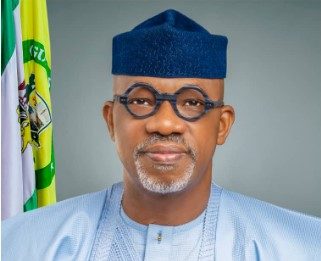
Abiodun, represented by his Deputy, Noimot Salako-Oyedele, made this pledge while speaking at the Citizen’s Engagement on the 2024–2026 Medium Term Expenditure Framework and 2024 Budget for Ogun East Senatorial District, held in Ijebu-Ode.
The governor said the exercise will enhance the transparency of the budget process and budget documentation so that policy goals and resource allocation are set out.
He said, “I must tell you that we are so keen on this exercise based on our style of governance and our avowed pledge to you to be open and accountable in all ways and to run an inclusive administration where everyone is involved in the decision-making process.
“As you all know, the Medium Term Expenditure Framework enhances the transparency of the budget process and budget documentation so that policy goals and resource allocation are clearly set out.
“It empowers the government to determine priorities and seamlessly deliver democratic deliverables without predilection or sentiment.
“Our vision for Ogun State is to provide focused and qualitative governance and to create the enabling environment for a public-private sector partnership, which is fundamental to the creation of enduring economic development and individual prosperity.
“That promise is still fresh in our hearts and remains irrevocable; this is why our infrastructural investments are people-oriented and transformational, with resultant and obvious multiplier effects on the socio-economic development of the state.
He added that his administration has done well and will continue to do so through ISEYA mantra as encapsulated in the “Building Our Future Together” Agenda, institutional policy, and structural revolutions for individuals.
“Our infrastructure investments are people-oriented and transformational, with immense multiplier effects on the socio-economic development of the entire citizenry of the state.
“In the area of agriculture, we initiated various programmes that include a partnership with the Central Bank of Nigeria (CBN) for the Anchor Borrowers Scheme on Agriculture, under which tens of thousands of our people are being empowered with already cleared farmland by the government, facilitate the acquisition of seedlings and seeds, and provide access to finance.
“We keyed into this programme because of the immense potential of agriculture to provide employment for our teeming youth,” he noted.
At the microeconomic level, these programmes provide job opportunities in agriculture for our youth and women, thereby providing income and food for themselves and their families, and on the macroeconomic level, they will be another boost to Nigeria’s food self-sufficiency agenda.
Also speaking, the Commissioner for Budget and Planning, Olaolu Olabimtan, said the programme was aimed at making governance a bottom-top approach.
“The inputs from the people are being generated to make the aim of MTEF achievable.
In his contribution, the Awujale of Ijebuland, Oba Sikiru Adetona, who was represented by Orimolusi of Ijebu Igbo, Oba Lawrence Adebajo, called for the opening up of rural areas to discourage rural-urban drift.
Oba Adetona said the opening up of rural areas, apart from reducing unemployment, will also fight the insecurity that is bedevilling the state.
He suggested a public-private approach, saying that the move would ensure that many of the youth roaming about the streets in urban areas engage themselves in meaningful ventures.





